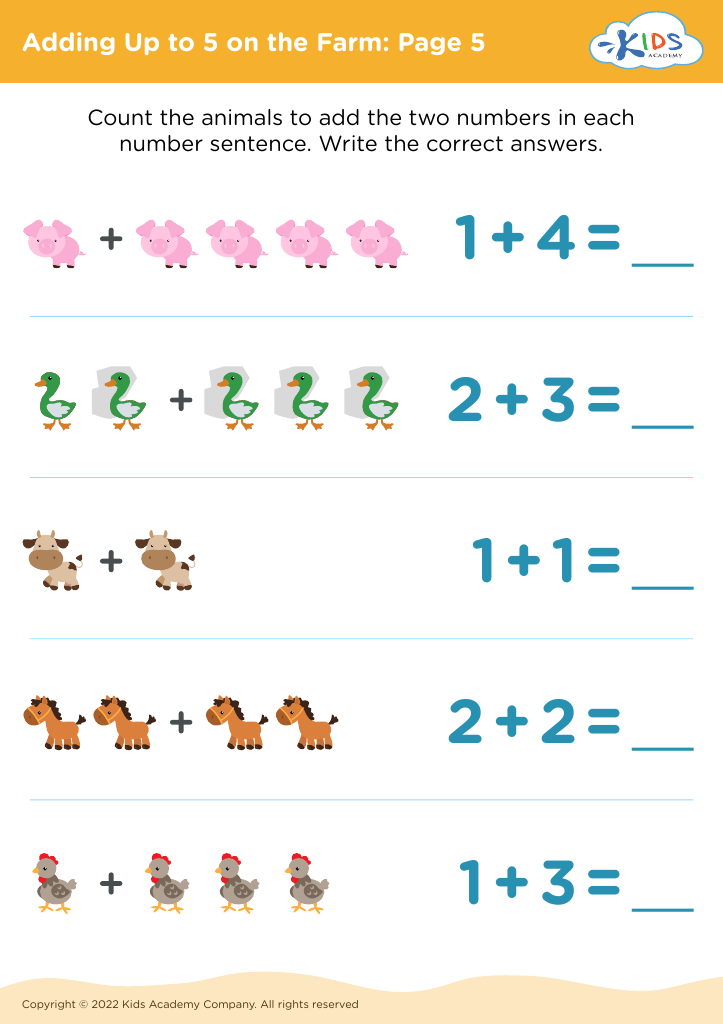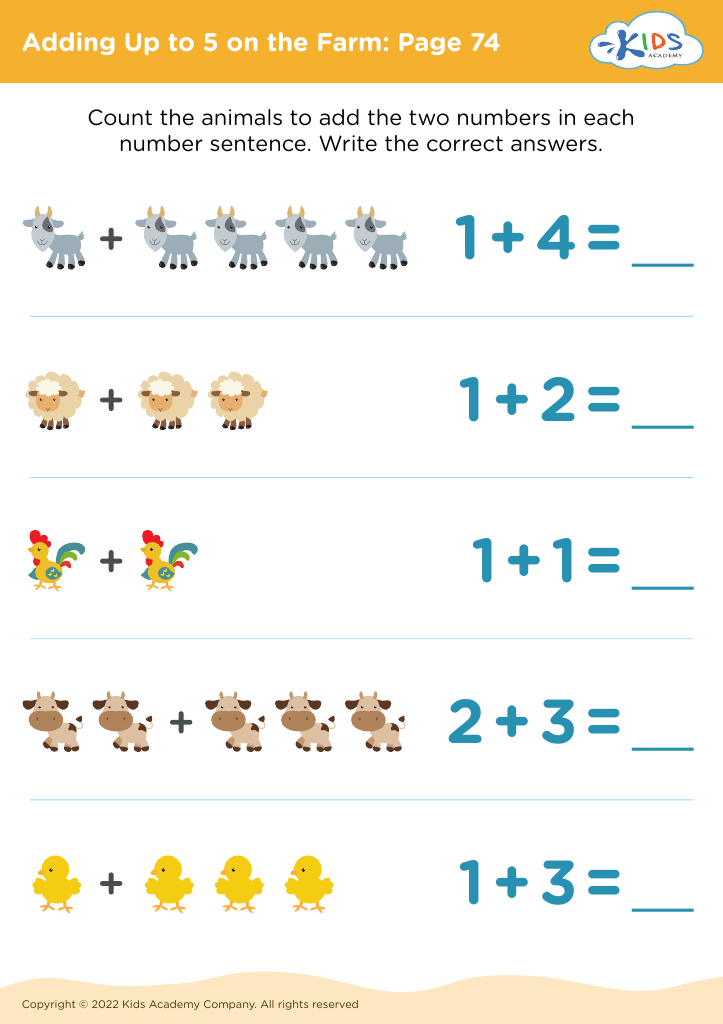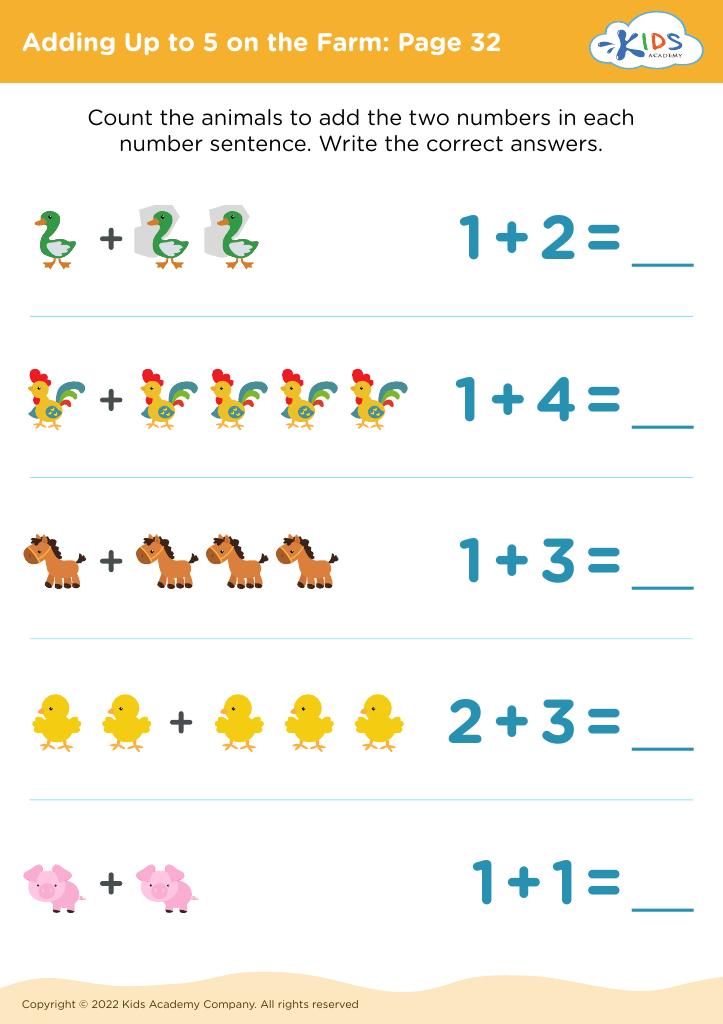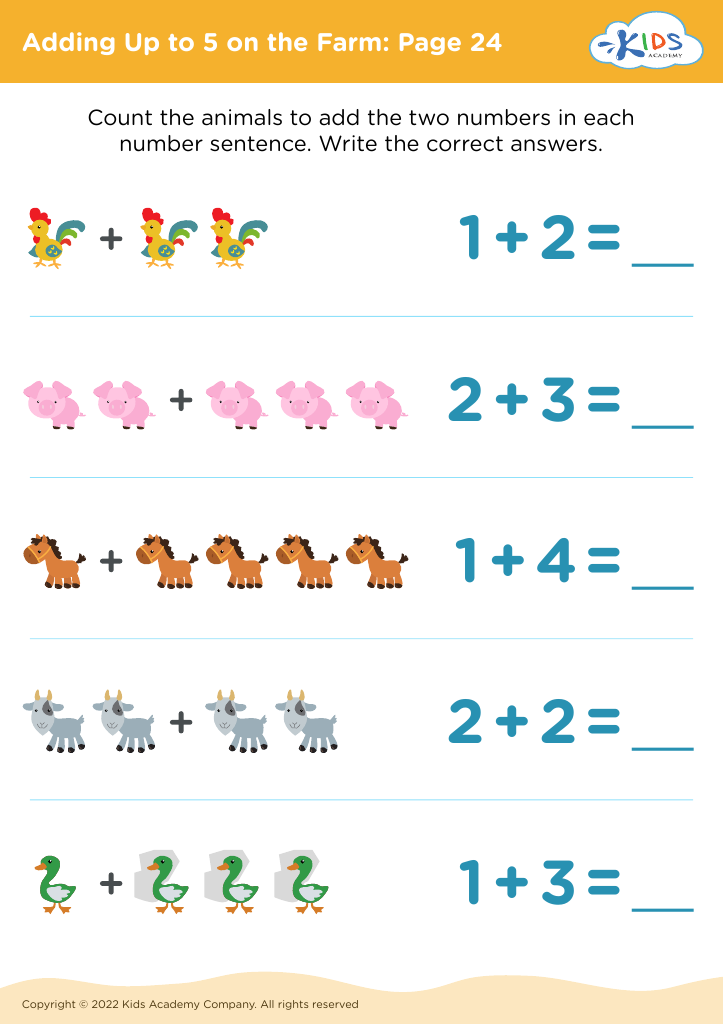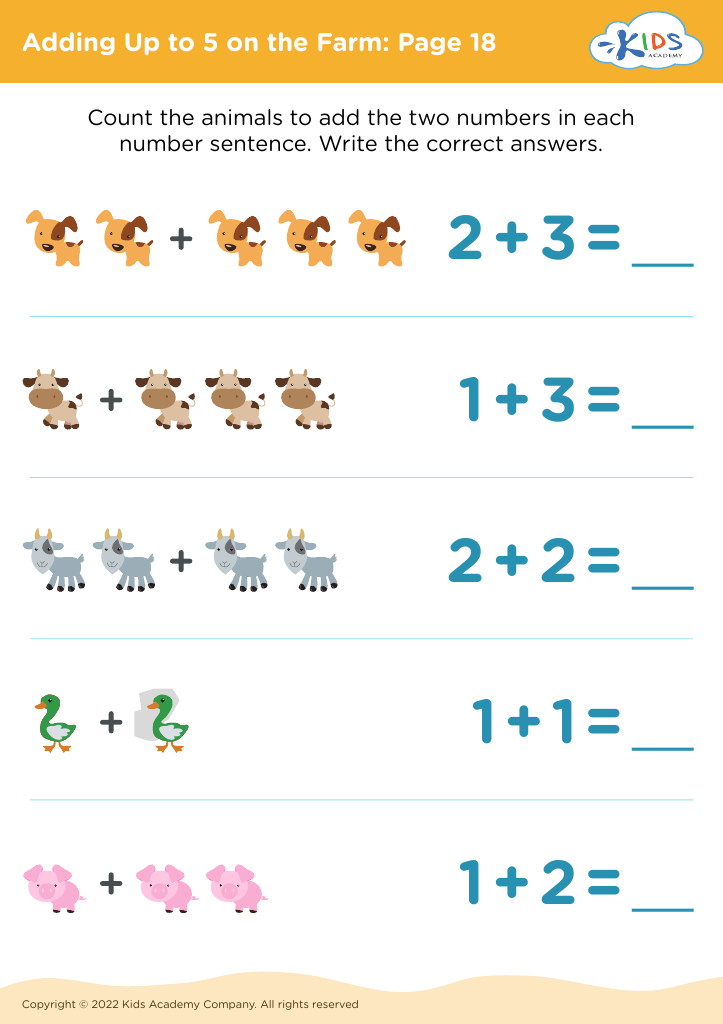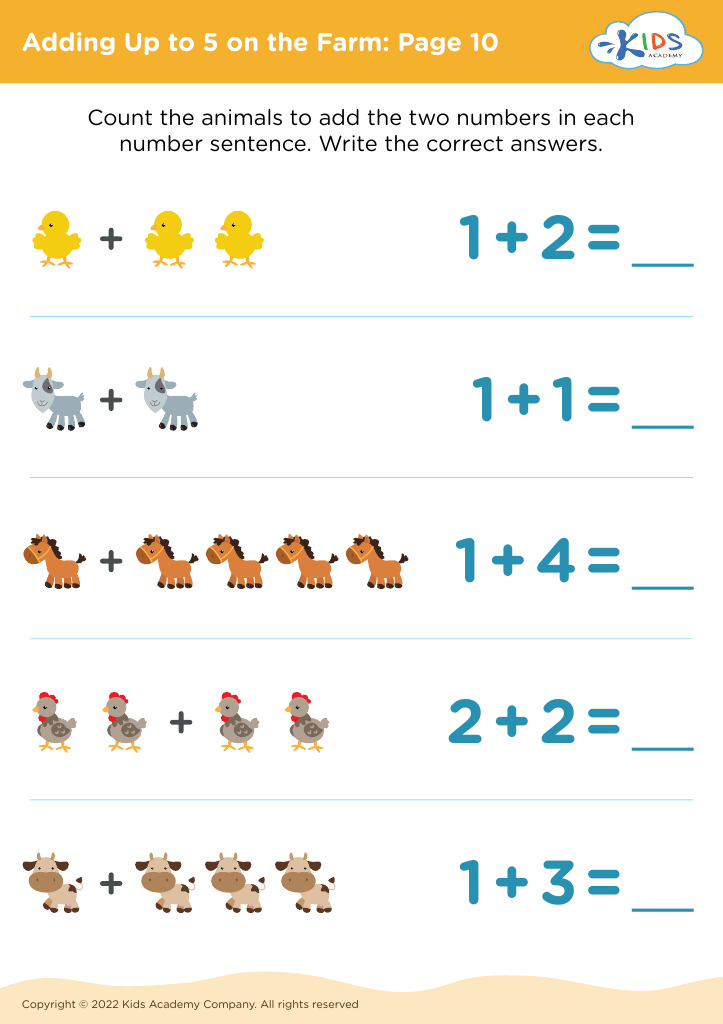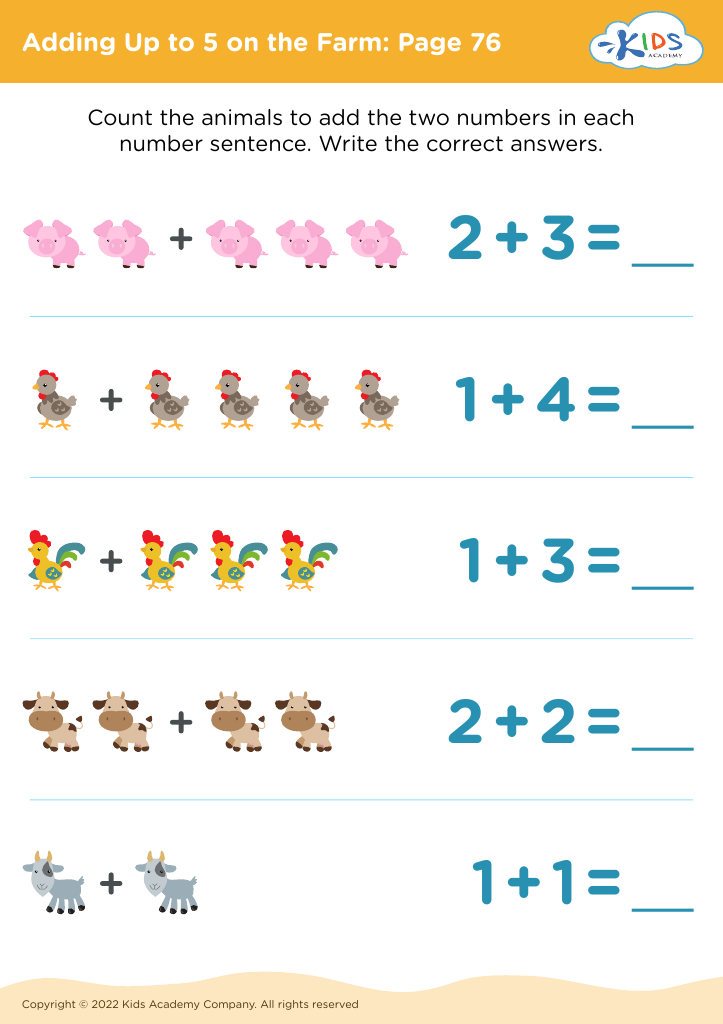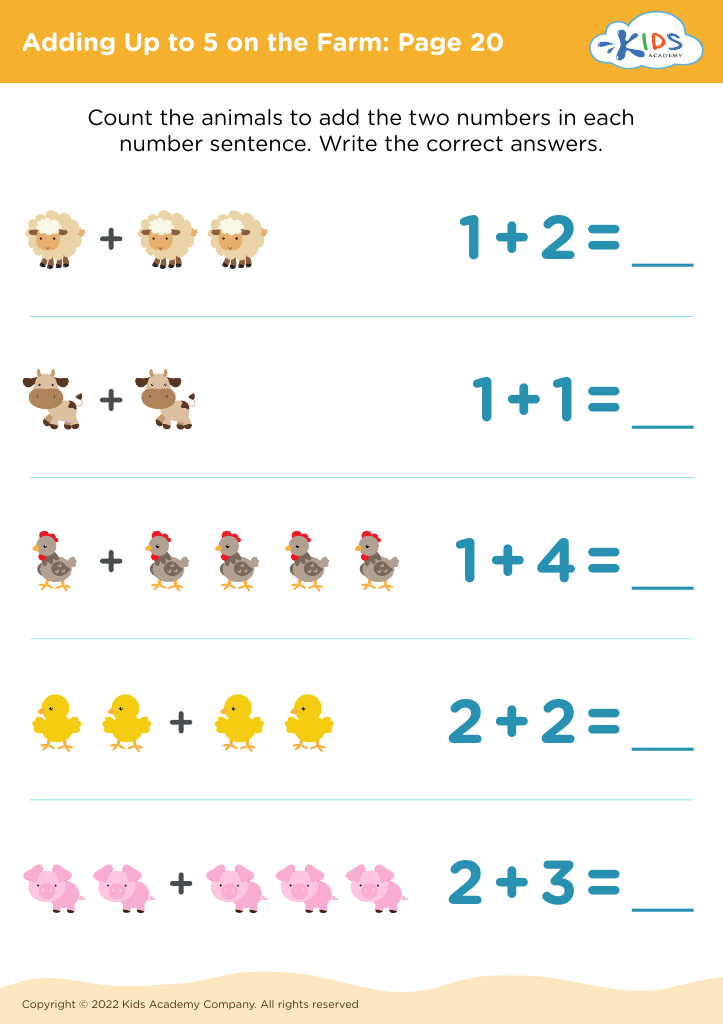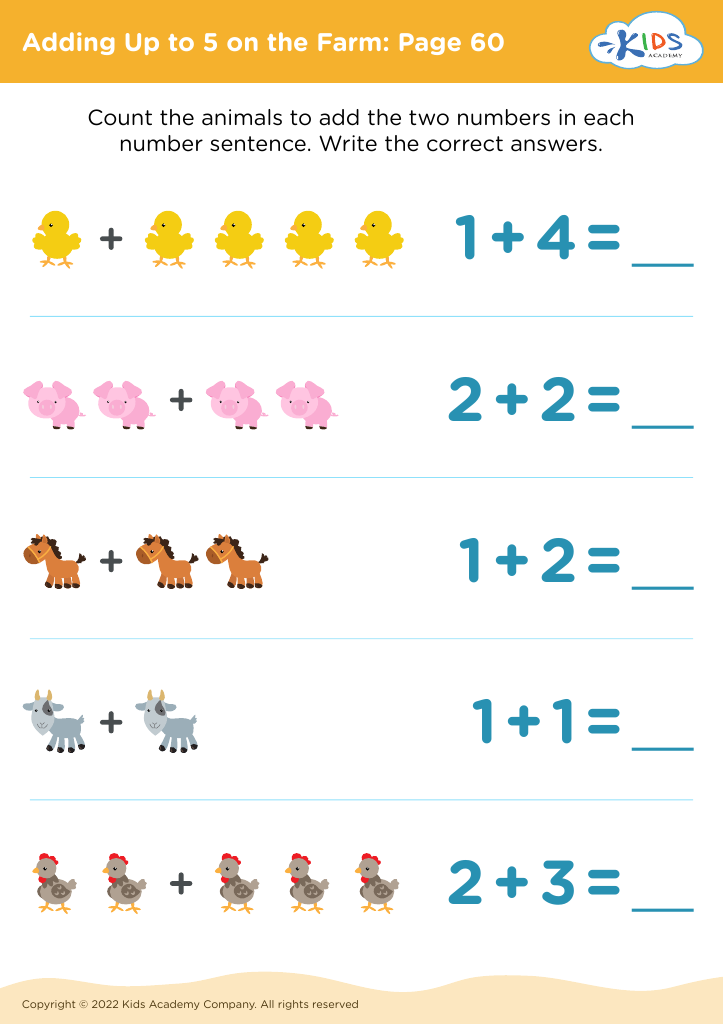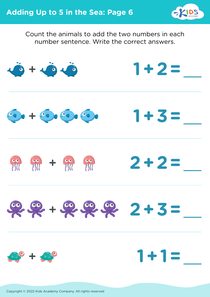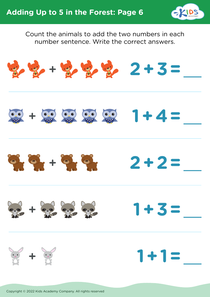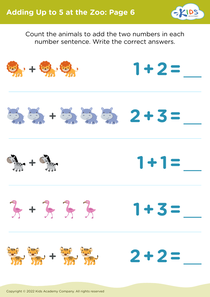Understanding Quantities Adding on the Farm Worksheets for Ages 3-4
9 filtered results
-
From - To
Introduce your young learners to the joys of math with our "Understanding Quantities Adding on the Farm Worksheets for Ages 3-4." These engaging worksheets blend fun farm themes with foundational math skills, helping preschoolers grasp the concept of quantities and basic addition. Perfect for ages 3-4, this educational material promotes counting, visual observation, and an understanding of simple sums. Featuring vibrant illustrations and interactive exercises, our worksheets make learning an adventure. Watch your child's confidence and mathematical skills grow as they practice adding numbers within a delightful farmyard setting. Ideal for both at-home learning and classroom activities.
Understanding Quantities Adding on the Farm is crucial for children ages 3-4 because it lays a foundational understanding of basic math concepts in an engaging and relatable manner. At this age, young children are naturally curious about the world around them. Using a familiar and exciting theme like a farm can help kids make connections between numbers and real-life situations, which is essential for cognitive development.
When children learn to add with tangible examples, such as counting animals or vegetables on a farm, they begin to grasp the concept of quantity and number relationships. This early exposure to math helps to build their confidence and willingness to tackle more complex problems later on. By understanding that math is not just an abstract concept but something they encounter in their everyday lives, children are more likely to develop a genuine interest and enthusiasm for learning.
Teachers and parents play crucial roles during these formative years. By integrating fun and interactive activities related to farm life, they can nurture children’s mathematical skills, social interaction, and language development simultaneously. Furthermore, these shared learning experiences foster positive attitudes towards education in general, making it more likely that these young minds will carry a lifelong love for learning.
